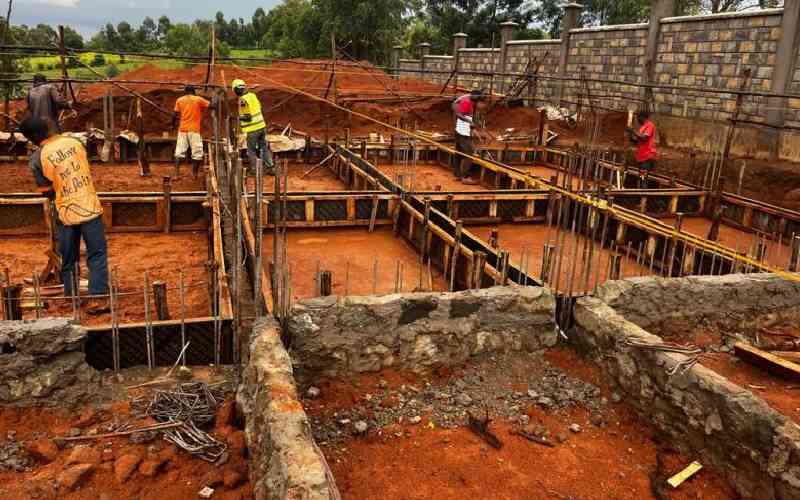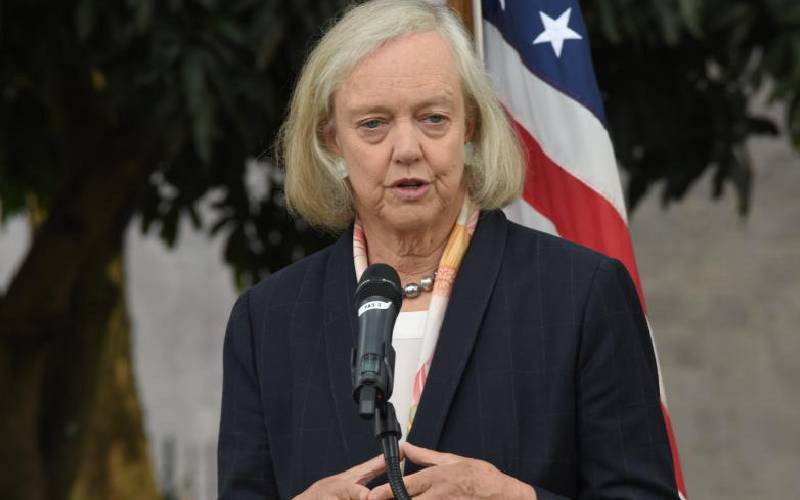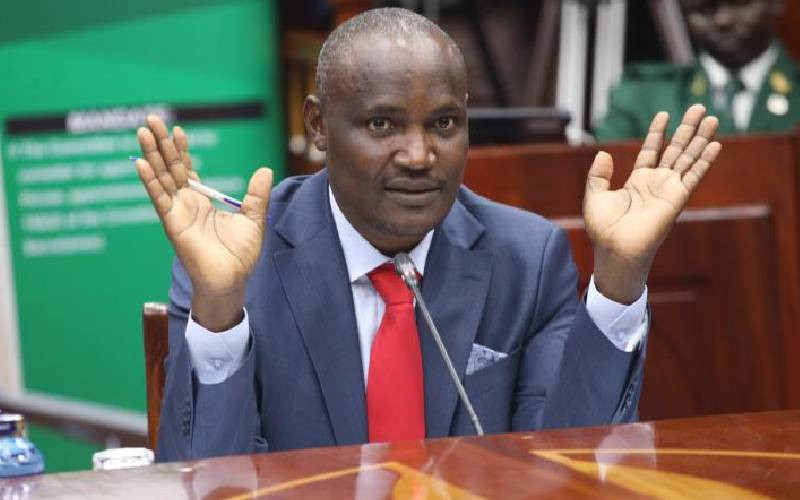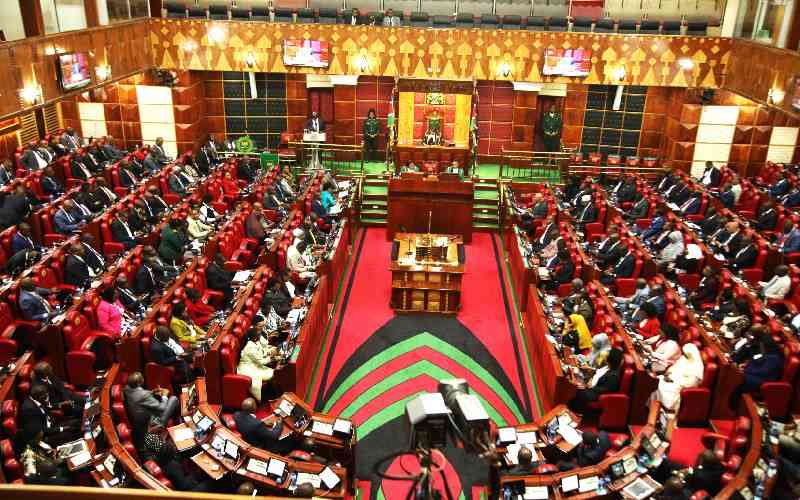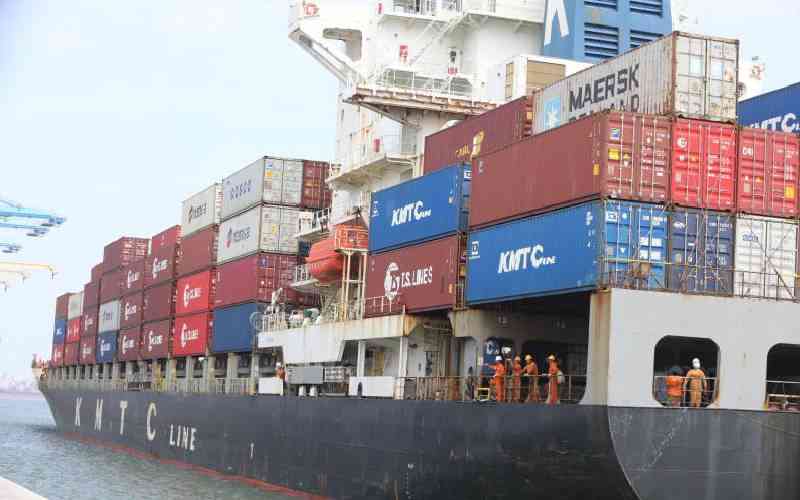Competitions the world over attract competitors who believe in their own capacity to fight it out on a fair and level playing field. No one wants to jump into a contest where they know all rules are against their possible victory. Even in gambling, where we are told the house always wins, there is always some assurance that the competitors- the gamblers stand a fair chance to win, though in all practicality, they hardly win against the house. Gamblers, including our compatriots who have recently gone crazy with sports betting, must, however, understand the rules, the rulers and the house in which they are competing.
And it is also the case in competitive politics, the so called democracy. Every politician intending play in a democracy must understand, as a matter of primacy, that they are in a competition and the competition has rules, rulers (those in charge of enforcing the rules) and the house (the country) which they are expected to acknowledge and follow at all times.
Lately, Kenya has been witnessing a very strange though not necessarily a bad trend, where competitors are getting the chance to set the rules and the rulers of the races in which they are to take part.
The game of politics and elective democracy in this country is assuming a very interesting dimension that, as progressive as it may seem, it may turn disastrous in future if it is not checked.
Kenya could be one of the few democracies in the world where politicians are given a free hand to decide who gets appointed as a commissioner in the electoral commissions and where they can instigate the removal of such commissions in time they sense the appointees are not dancing to their whims. We have seen this since the time of the Inter Parties Parliamentary Group (IPPG) in 1997 and the trend has continued at every significant election.
Though the spirit of IPPG was not bad given the prevailing circumstances, it seems to have set precedence that every time an election is in the offing, there is always some agitation to have the overseeing team changed and other new individuals appointed. At some point, this trend will make a mockery of the security of tenure of the office of commissioners and open them to temptations that come with casual labouring. They are many and so are the consequences. It is not in the best interest of the sport if players are allowed to choose their referees.
Refereeing aside, why are we allowing players to start choosing the tools, the uniforms, the whistle, the balls and their manufacturers and suppliers, the ball boys etc? Soon, the players may start demanding to be allowed to dictate the weather- the intensity of the sun, the shades of the clouds in the sky and whether it should drizzle in the course of the game or not!
The Opposition has been taking the country in circles that may lead even a political observer to doubt their sincerity and conclude the opposite of if they want an election. How would one explain the fact that since the reintroduction of multiparty democracy in the run-up to the 1992 election the Opposition has always been in the forefront of, and most times succeeding in, efforts to have electoral commissioners appointed and changed?
This year’s election, however, is witnessing the highest level of activity as far as erecting hurdles in the way of a smooth and seamless process is concerned.
NASA has complained about the affiliation of the individual commissioners and the commission’s CEO. They have also gone to court to block procurement of election materials, with the idea of coming up with a parallel tallying centre on the table. They have also come out strongly to slam Matiang’i – claiming that he might be involved in rigging.
Mr Mugolla is a high school teacher in Busia County.
 The Standard Group Plc is a
multi-media organization with investments in media platforms spanning newspaper
print operations, television, radio broadcasting, digital and online services. The
Standard Group is recognized as a leading multi-media house in Kenya with a key
influence in matters of national and international interest.
The Standard Group Plc is a
multi-media organization with investments in media platforms spanning newspaper
print operations, television, radio broadcasting, digital and online services. The
Standard Group is recognized as a leading multi-media house in Kenya with a key
influence in matters of national and international interest.
 The Standard Group Plc is a
multi-media organization with investments in media platforms spanning newspaper
print operations, television, radio broadcasting, digital and online services. The
Standard Group is recognized as a leading multi-media house in Kenya with a key
influence in matters of national and international interest.
The Standard Group Plc is a
multi-media organization with investments in media platforms spanning newspaper
print operations, television, radio broadcasting, digital and online services. The
Standard Group is recognized as a leading multi-media house in Kenya with a key
influence in matters of national and international interest.



